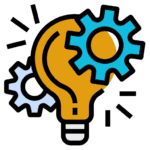Oracle Training in Chennai
Boost your career by enrolling in GETIN TECHNOLOGIES, your gateway to becoming a Certified Oracle Professional with industry-ready skills in SQL, PL/SQL, Oracle Database Administration, and Real-time Project Handling!
Boost your career by enrolling in GETIN TECHNOLOGIES, your gateway to becoming a Certified Oracle Professional with industry-ready skills in SQL, PL/SQL, Oracle Database Administration, and Real-time Project Handling!
Getin Technologies provides one of the most thorough Oracle Training programs in Chennai, aimed at giving both students and professionals a deep understanding of Oracle databases and applications. The training is thoughtfully designed to encompass everything from the basics of SQL and PL/SQL scripting to advanced database administration, ensuring that learners gain the skills needed to manage real-time Oracle systems effectively.
With practical projects, real-world scenarios, and guidance from industry experts, our Oracle training offers valuable hands-on experience and a solid grounding in database management. Whether you’re just starting out or looking to enhance your skills, Getin Technologies is here to help you become job-ready, complete with certification support and placement assistance.
Dive into Oracle Training in Chennai and equip yourself with the skills that matter in today’s job market. You’ll get hands-on experience and personalized support from certified experts. Our curriculum is designed to keep you in the loop with the latest trends, helping you elevate your career to new heights.

Gain hands-on experience through internships that are woven into your training program, allowing you to put your knowledge to the test in real-world settings.

Learn from seasoned Oracle professionals who bring in-depth industry insights and proven teaching methods to every session.

Dive into live Oracle projects that mimic actual workplace situations, boosting your problem-solving abilities and project management skills.

Enhance your communication, teamwork, and interview skills with targeted soft skill sessions that perfectly complement your technical know-how.

Take advantage of our proactive placement team that links you with leading recruiters and equips you for interviews and the hiring process.

Participate in mock interviews led by experts to build your confidence and prepare you for the real job interviews ahead.
Boost your career by enrolling in GETIN TECHNOLOGIES and become a confident IT professional.














Introduction to Databases and SQL
SQL Basics
Querying Data
Data Filtering and Manipulation
Aggregating Data
Joining Tables
Modifying Data
Creating and Managing Database Schema
Views and Indexes
Security and Access Control
Introduction to PL/SQL
PL/SQL Language Fundamentals
Control Structures
Cursors in PL/SQL
Exception Handling
Procedures and Functions
Triggers
PL/SQL Collections
Dynamic SQL
Error Handling and Logging
PL/SQL Security
Introduction to Oracle Performance Tuning
Oracle Database Architecture
SQL Performance Tuning
Indexing and Query Optimization
Performance Monitoring and Tools
Resource Management
Caching and Buffering
Real Application Testing
Tuning for Specific Workloads
Advanced Performance Topics
Troubleshooting and Performance Diagnostics
Introduction to Shell Scripting
Shell Basics
Variables and Data Types
Input and Output
Control Structures
Functions and Scripts
File and Directory Operations
Text Processing
Process Management
Error Handling and Logging

Eligible: BE, ME, BTech, MTech BSC, BCom, BA, BCA, MBA, MSC, MCA, BBA, MCom
Not Eligible: Diploma

Eligible: BE, ME, BTech, MTech BSC, BCom, BA, BCA, MBA, MSC, MCA, BBA, MCom
Not Eligible: Diploma

Share your resume to Our WhatsApp +91 8925831828. Our Placement Team will Validate your Profile and get back to you shortly.
| Role | Fresher (0–2 yrs) | Experienced (3–7 yrs) |
|---|---|---|
| Oracle PL/SQL Developer | ₹3.0 – ₹5.0 LPA | ₹6.0 – ₹12.0 LPA |
| Oracle Database Administrator (DBA) | ₹4.0 – ₹6.0 LPA | ₹8.0 – ₹18.0 LPA |
| Oracle Apps Technical Consultant | ₹4.5 – ₹6.5 LPA | ₹9.0 – ₹20.0 LPA |
| Oracle Functional Consultant | ₹5.0 – ₹7.0 LPA | ₹10.0 – ₹22.0 LPA |
| Oracle Fusion Middleware Developer | ₹5.0 – ₹7.0 LPA | ₹10.0 – ₹20.0 LPA |
| Oracle E-Business Suite Developer | ₹4.5 – ₹6.0 LPA | ₹9.0 – ₹18.0 LPA |
| Oracle Cloud Infrastructure (OCI) Admin | ₹6.0 – ₹8.0 LPA | ₹12.0 – ₹25.0 LPA |
| Oracle Apex Developer | ₹3.5 – ₹5.5 LPA | ₹8.0 – ₹14.0 LPA |
| Oracle Data Integrator (ODI) Expert | ₹5.0 – ₹7.0 LPA | ₹10.0 – ₹20.0 LPA |
| Oracle ERP Consultant | ₹5.0 – ₹7.5 LPA | ₹12.0 – ₹24.0 LPA |
Note: Salary ranges are approximate and may vary by company, location, and experience.











